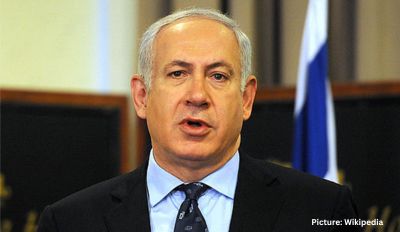Demonstrators across the nation blocked streets and major highways throughout Israel on March 16, 2023 continuing nationwide protests over Prime Minister Benjamin Netanyahu‘s plan to overhaul the country’s judicial system. Despite the widespread unrest, the conservative administration appeared determined to move forward with legislation that would upend Israel’s legal system by handing Netanyahu’s government full control over the country’s judiciary, with the sovereignty of the Supreme Court also at stake.
Netanyahu and his allies say the country’s unelected judges have too much power and need to be reined in. His opponents say that Netanyahu, who is on trial for corruption charges, has a deep conflict of interest. They say his planned overhaul will destroy the country’s democratic checks and balances and is a poorly disguised plot to make his criminal case go away.

Last week, half a million Israelis took to the streets in the tenth consecutive week of protests against plans by the government of Benjamin Netanyahu to overhaul the country’s judicial system, organizers claimed. Israel has a population of just over 9 million, so if organizers’ estimates are correct, about 5% of Israelis came out to voice their opposition to the proposed reforms.
Nearly half of the protesters – about 240,000 – gathered in Tel Aviv, the organizers said. In Jerusalem, several hundred demonstrators gathered in front of President Isaac Herzog’s house. They carried Israeli flags and chanted slogans including “Israel will not be a dictatorship.”
On Thursday, Herzog – whose role is largely ceremonial – urged the Netanyahu government to take the judicial overhaul legislation off the table. Protesters and critics of Netanyahu’s plan say it would weaken the country’s courts and erode the judiciary’s ability to check the power of the country’s other branches of government.
The package of legislation would give Israel’s parliament, the Knesset, the power to overrule Supreme Court decisions with a simple majority. It would also give the government the power to nominate judges, which currently rests with a committee composed of judges, legal experts and politicians.
It would remove power and independence from government ministries’ legal advisers, and take away the power of the courts to invalidate “unreasonable” government appointments, as the High Court did in January, forcing Netanyahu to fire Interior and Health Minister Aryeh Deri.
Critics accuse Netanyahu of pushing the legislation in order to get out of corruption trials he is currently facing. Netanyahu denies that, saying the trials are collapsing on their own, and that the changes are necessary after judicial overreach by unelected judges.
Israel does not have a written constitution, but a set of what are called Basic Laws. “We are done being polite,” said Shikma Bressler, an Israeli protest leader. “If the laws being suggested will pass, Israel will no longer be a democracy.”
About two out of three (66%) Israelis believe the Supreme Court should have the power to strike down laws incompatible with Israel’s Basic Laws, and about the same proportion (63%) say they support the current system of nominating judges, according to a poll last month for the Israel Democracy Institute.
“The only thing this government cares about is crushing Israeli democracy,” opposition leader and former Prime Minister Yair Lapid said. The proposal has touched off deep political discord in Israel in recent weeks, with public turmoil reaching a fever pitch one day after Netanyahu and members of his right-wing coalition snubbed a proposal by President Isaac Herzog that was widely supported as a viable alternative to the controversial shakeup.
Herzog and protest leaders have continued to warn that political chaos gripping the nation had potential to ignite a civil war unless a compromise could be reached soon.











